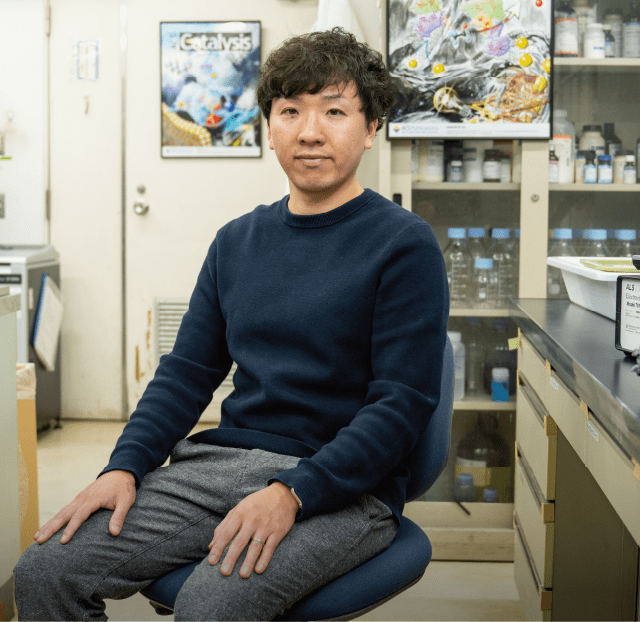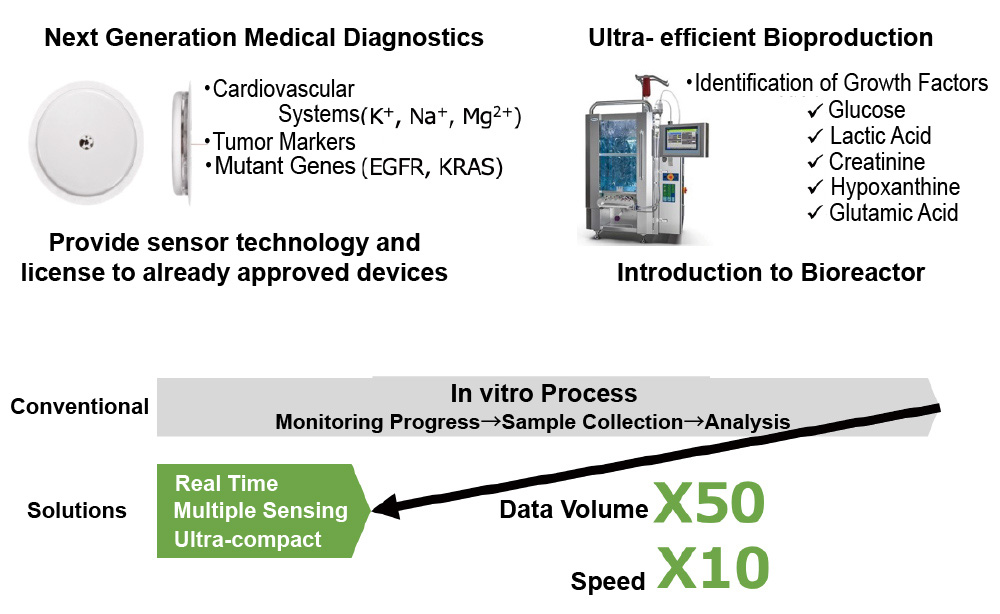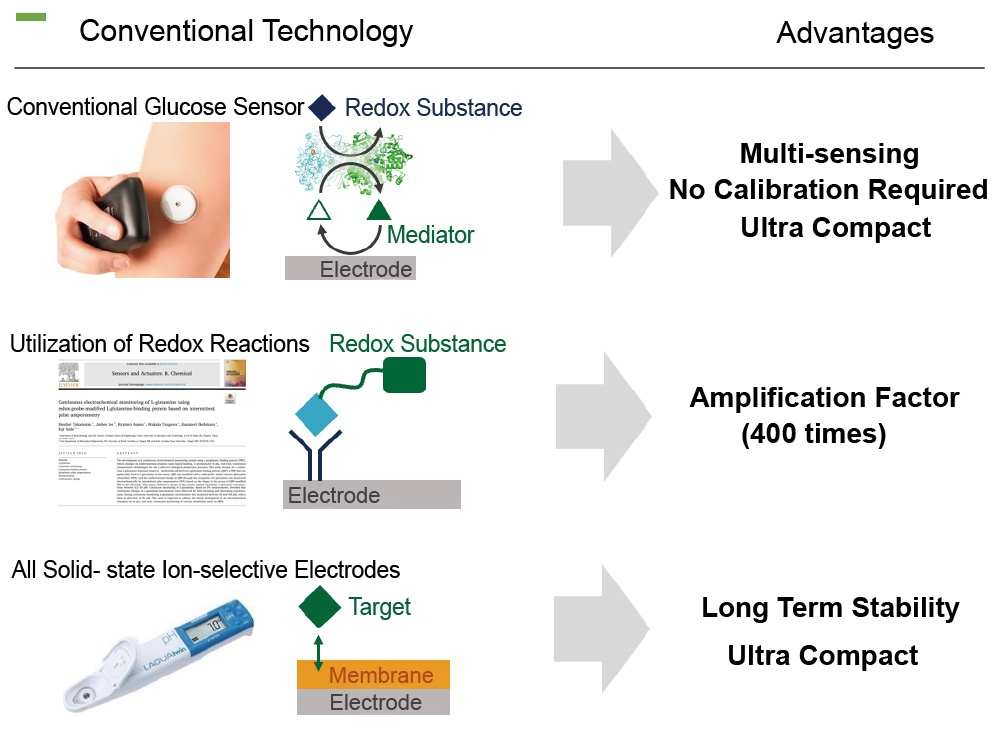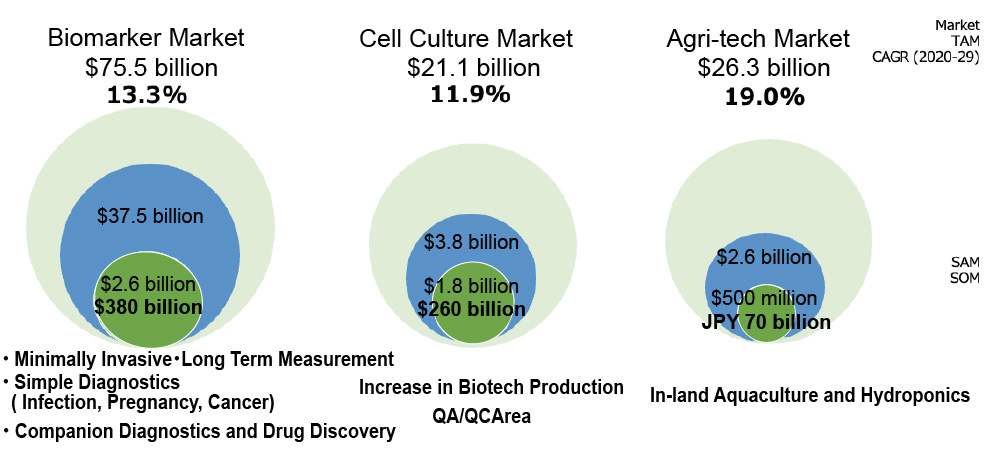Ultra-compact Biosensors for Real-time Multi-
monitoring
Ultra-compact Biosensors for Real-time Multi-
monitoring
Sensing of various chemical substances is required in the fields of medical check-up, personalized medicine, clinical testing, bioproduction, smart agriculture, and land-based aquaculture in order to extend healthy life expectancy and realize sustainable industries. Therefore, we have developed sensors for three chemical substances (1) small redox substances, (2) biological substances, and (3) inorganic ions. We aim to establish biosensing technology with the characteristics required for big data analysis (real-time monitoring, multi-sensing, and ultra-compact).
- Affiliation:
- Kyoto University
Graduate School of Agriculture
Laboratory of Bioanalytical and Physical Chemistry
- Representative:
- Keisei Sowa

Assistant Professor,
Kyoto University
Graduate School of Agriculture,
Department of Applied Life Sciences
Keisei Sowa PhD
Doctoral degree from the Graduate School of Agriculture of the same university in 2017. After working as a researcher at a private company, he was appointed to his current position in 2021. He aims to develop a third-generation biosensor using direct electron transfer-type enzymes based on electrochemical understanding of the essential functions of living organisms.
SOCIALSocial Implementation
Biosensors with High Spatial Resolution for Sensing Areas Previously Impossible
Our mission is to “Innovate ‘Measuring’”. We provide biosensor technology with high spatial resolution on any time axis, with no restrictions on the target substance. For example, the technology will be applied to next-generation medical diagnostics and ultra-efficient bioproduction to maximize value by enabling sensing in areas that were previously impossible with conventional sensing, such as by achieving a 50-fold increase in data volume and a 10-fold increase in sensing speed compared to conventional in vitro processes.
ORIGINALITYUniqueness, Passion for Development
Next- generation Biosensors Utilizing Proprietary Biological Data and Enzyme Expression Systems
We will develop a technology that enables quantification of a wide variety of substances without the need for calibration and create a new electrochemical information conversion technology for biomaterials by utilizing basic data on biomaterials and our proprietary enzyme expression system, which only we possess. With this technology, we will establish a platform technology that meets the needs of each of our customers, such as biomarkers for cancer and other diseases and measurement during cell cultivation, and realize biosensors with the features of real-time monitoring, multi-sensing, and ultra-compact size.
VISIONDream, Outlook, Business Image
Establish in 2025 and Expand Business Globally
We aim to establish the company in January 2025. After that, it plans to raise 500 million yen in Series A funding to set up an R&D lab and launch a small-scale production line to begin catalog sales of ultra-compact sensors in Q3, 2026. Further, with an eye on global expansion, the company seeks to obtain milestone contracts through the development of custom services and joint R&D with companies, and to fully enter the $75.5 billion TAM biomarker market and the $21.1 billion TAM cell culture market.




